Mirror City is under siege. Not by gangs or an army, but by corporate interests. As a hacker with a subway pass, you take on jobs to bolster the local power brokers while hacking the corpo’s systems. You’re not doing this for charity, though. In Mirror City, a good rep is as good as a pile of cash, and being the best is the best way to live as a legend. Are you going to ride the rails to fame and fortune, or get caught by the corpos and be forgotten?
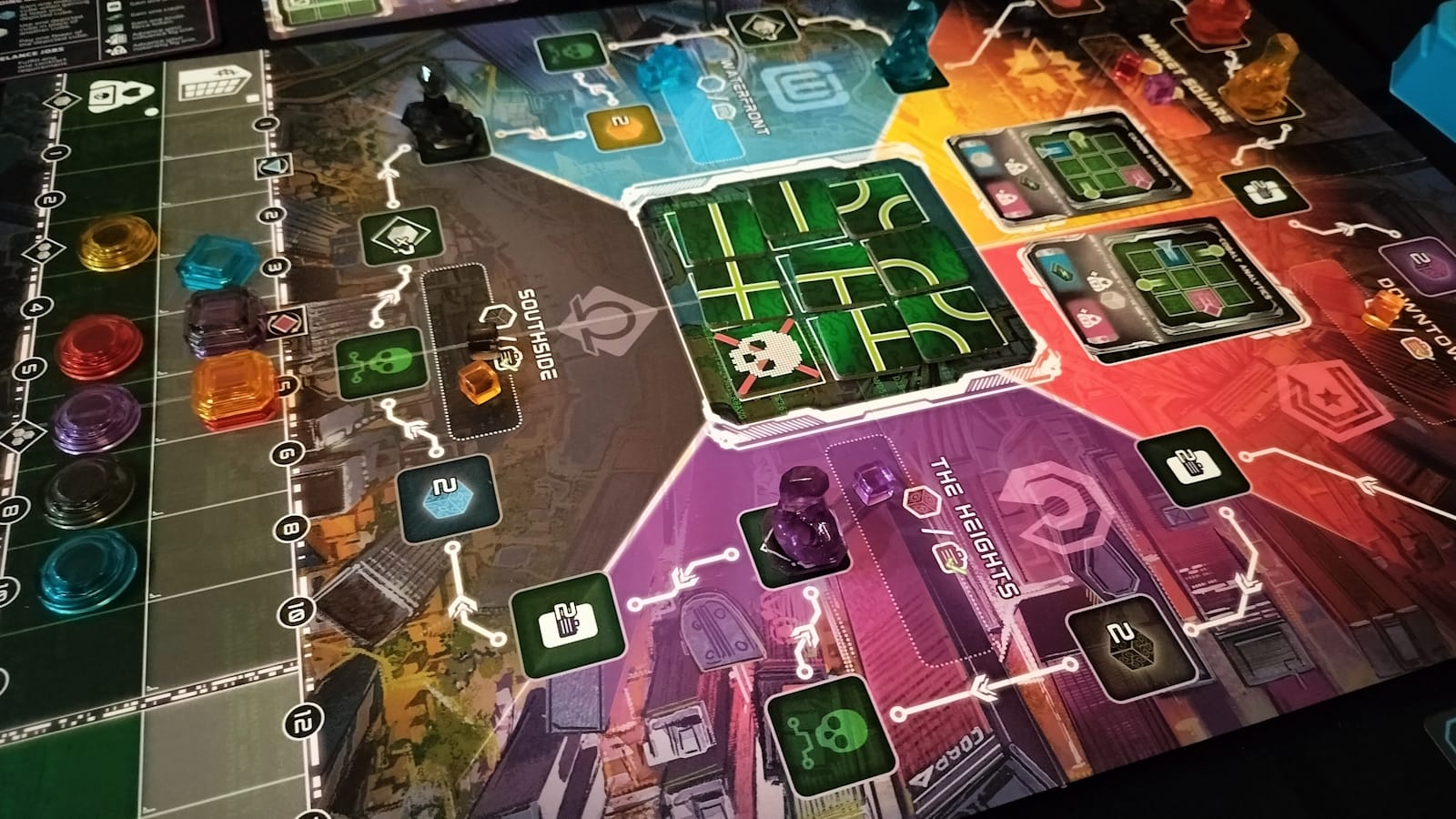
Metrorunner is a pick-up and deliver game for 2-5 players with puzzle elements designed by Stephen Kerr and published by Thunderworks Games. Players take on the roles of couriers and operatives performing missions for the various power blocs in the city, and hacking networks to gain advantage over their rivals. Players will start in their own colored quadrant and move clockwise around the board. Each turn, players will move 1 or 2 spaces around the board, but might move further at the cost of some resources. After moving, players will either perform an action based on the space they landed on or perform a zone action based on the colored area of the board they’re in.
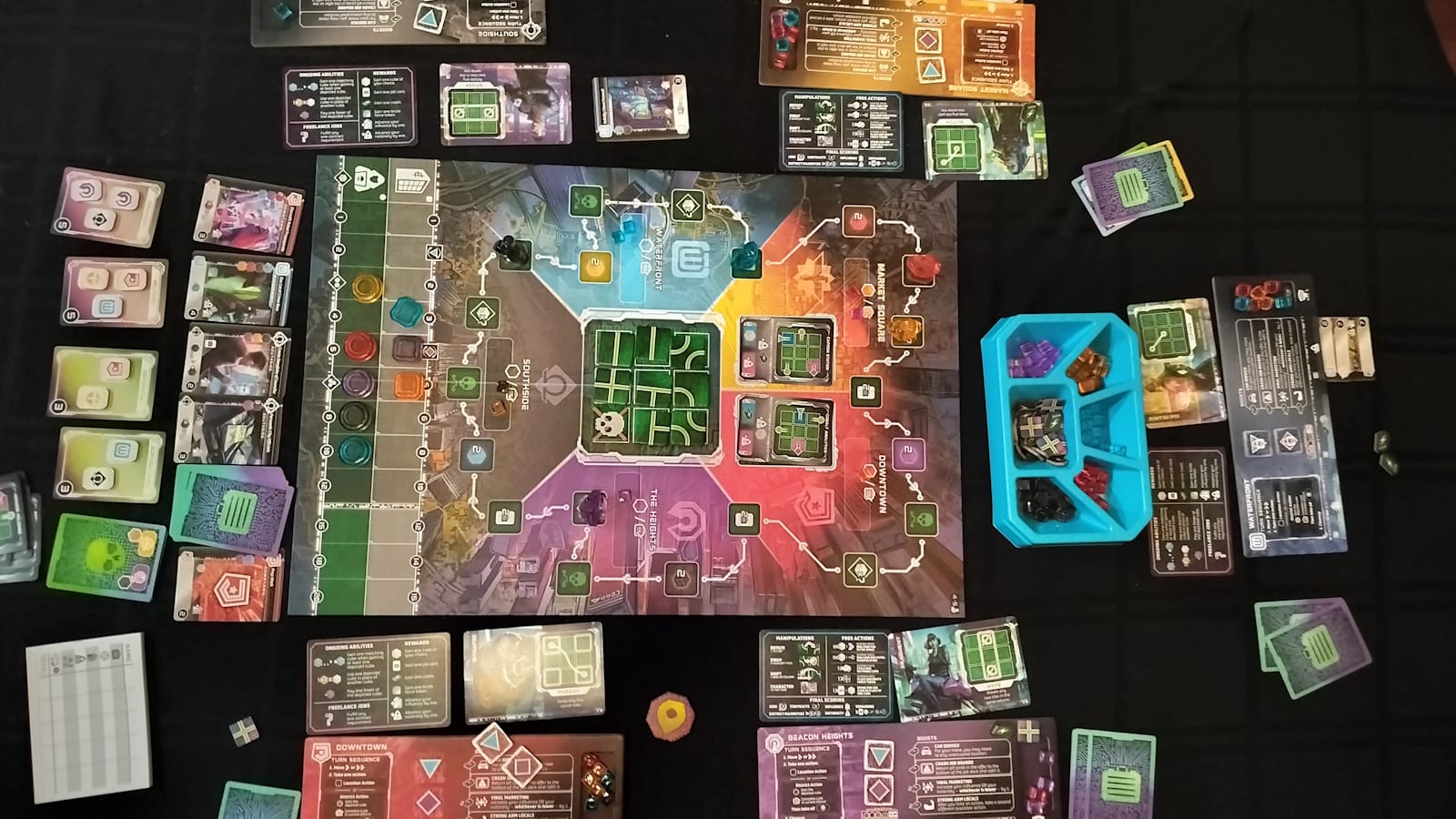
There are a few different kinds of spaces, though most will straightforwardly reward either cards or resource cubes. The most important space in each colored area is the Hack space. When hacking, players will look at the tile puzzle at the center of the board, as well as the two solution cards available. To solve the puzzle, players must shift, swap, or rotate the tiles to make a path between two points to match one of the two solution cards available. There’s also 2 separate bonus connections that can provide additional resources if the player gets them while solving the main connections. It’s basically Pipe Dream played on a small scale. These puzzles move you up your Infamy track, one of the two primary tracks for points, and reward players with resources that are otherwise hard to get your hands on, like credits.
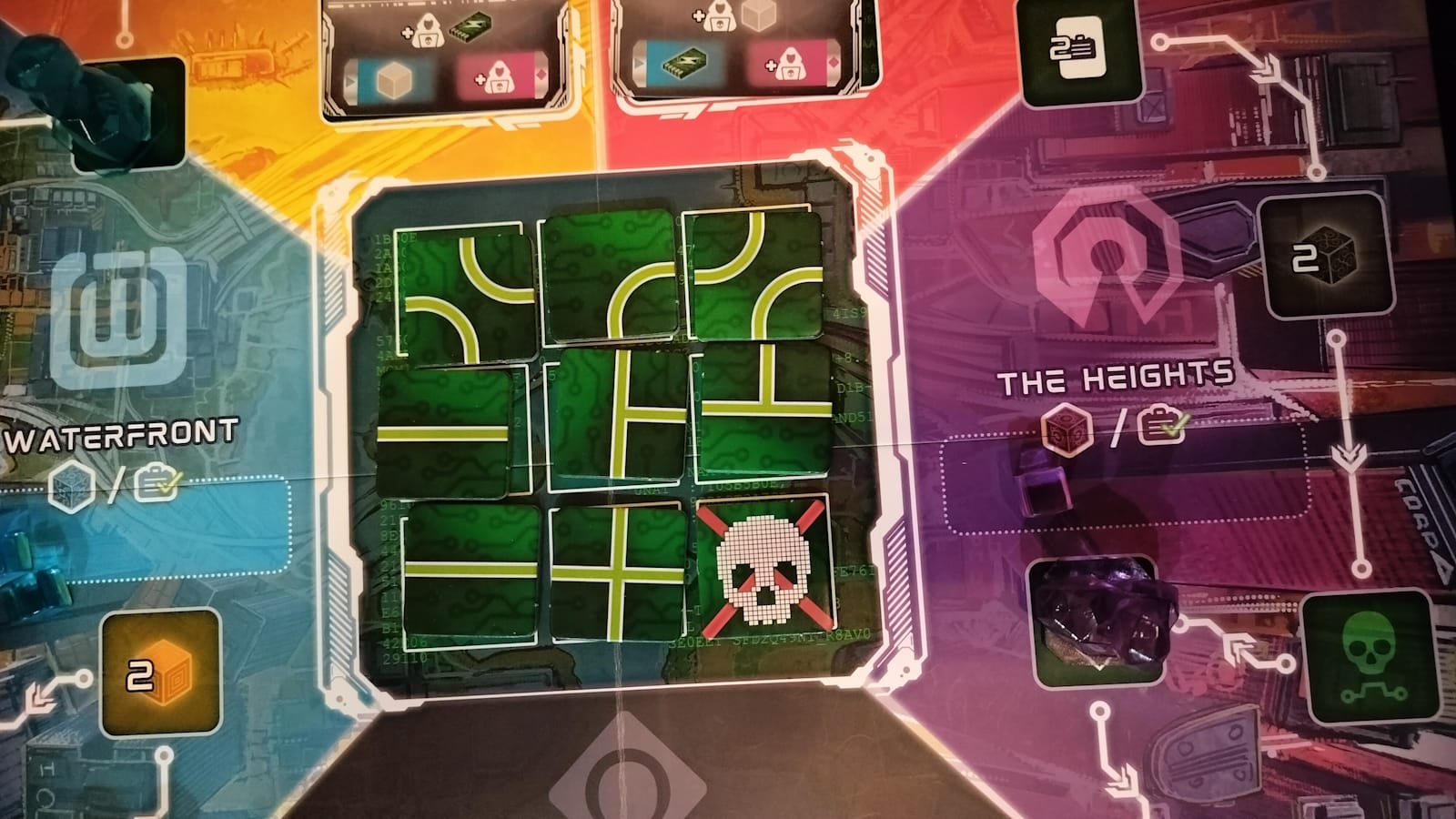
Credits can be used to do extra actions in a turn. 1 dollar gets you a ride to any space on the board, or the ability to discard the market of job cards for a new set. 2 dollars moves you up one of the 2 point tracks, or gets you an extra action this turn, which is quite powerful.
Finally, there are jobs. Jobs are your primary method of moving up the Influence Track, which is the other main way to gain points. To complete a job, players need to have the cubes listed on the job card and be in the colored area of the board matching the job card. When they do, they get some bonus goodies, like money, cubes, or omnihacks (to help with hacking), as well as the passive effect of that job card. These cards are slotted into one of the three spots on your double-thickness player board, providing a bonus and a console of abilities to manipulate or save on cubes to make completing jobs easier as you go.
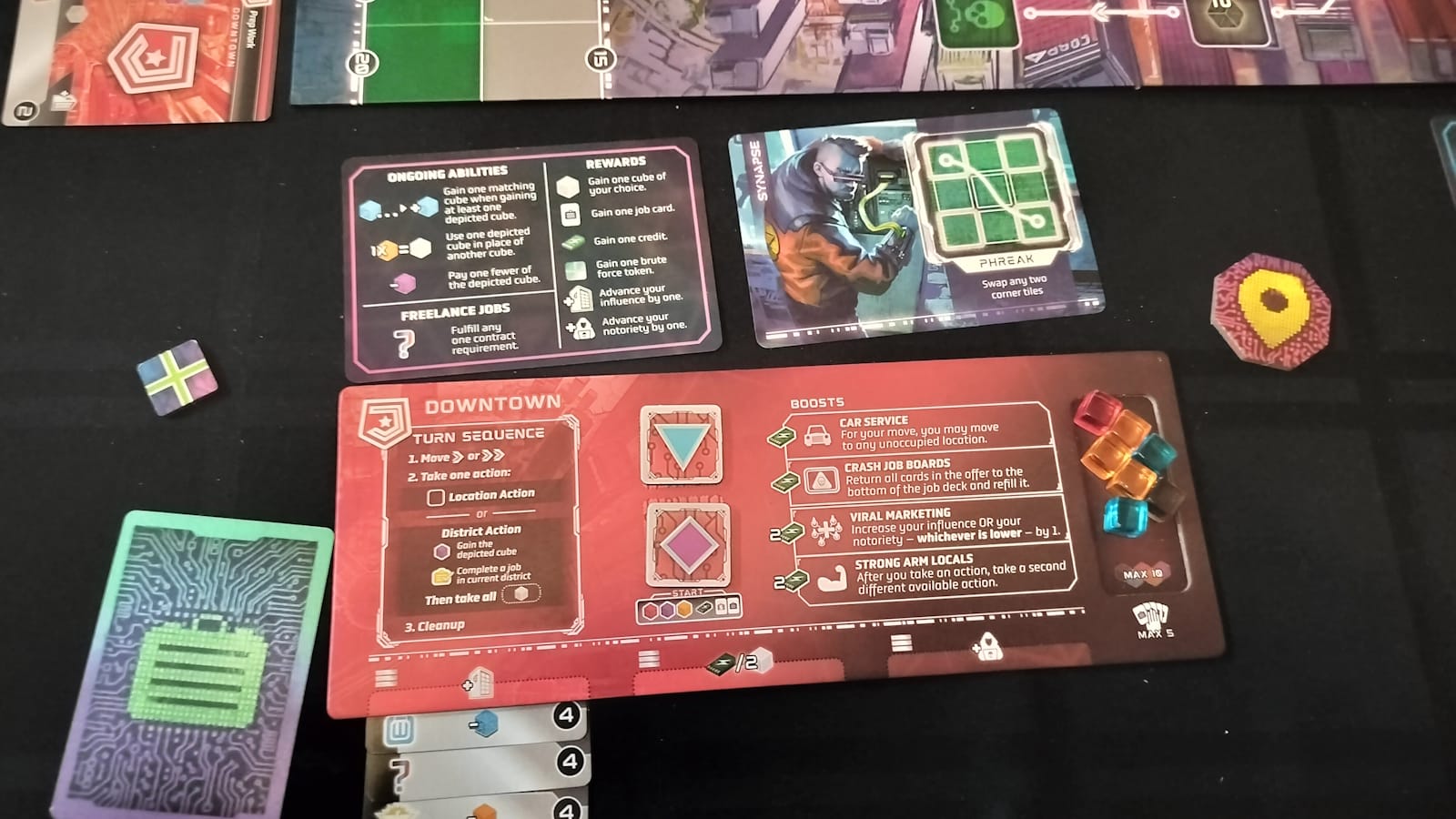
You don’t want to slot jobs in without thinking, though, because one of the other main ways to earn points is from Contracts. Contracts provide points at the end of the game based on the colors of jobs left in each slot. These contracts are built randomly each game, so you need to pay attention when you’re slotting your jobs. Do you get a specific resource, or do you build towards completing a contract? Maybe you try to complete a wild job so you can complete a contract, but you will never gain any passive benefits from those cards.
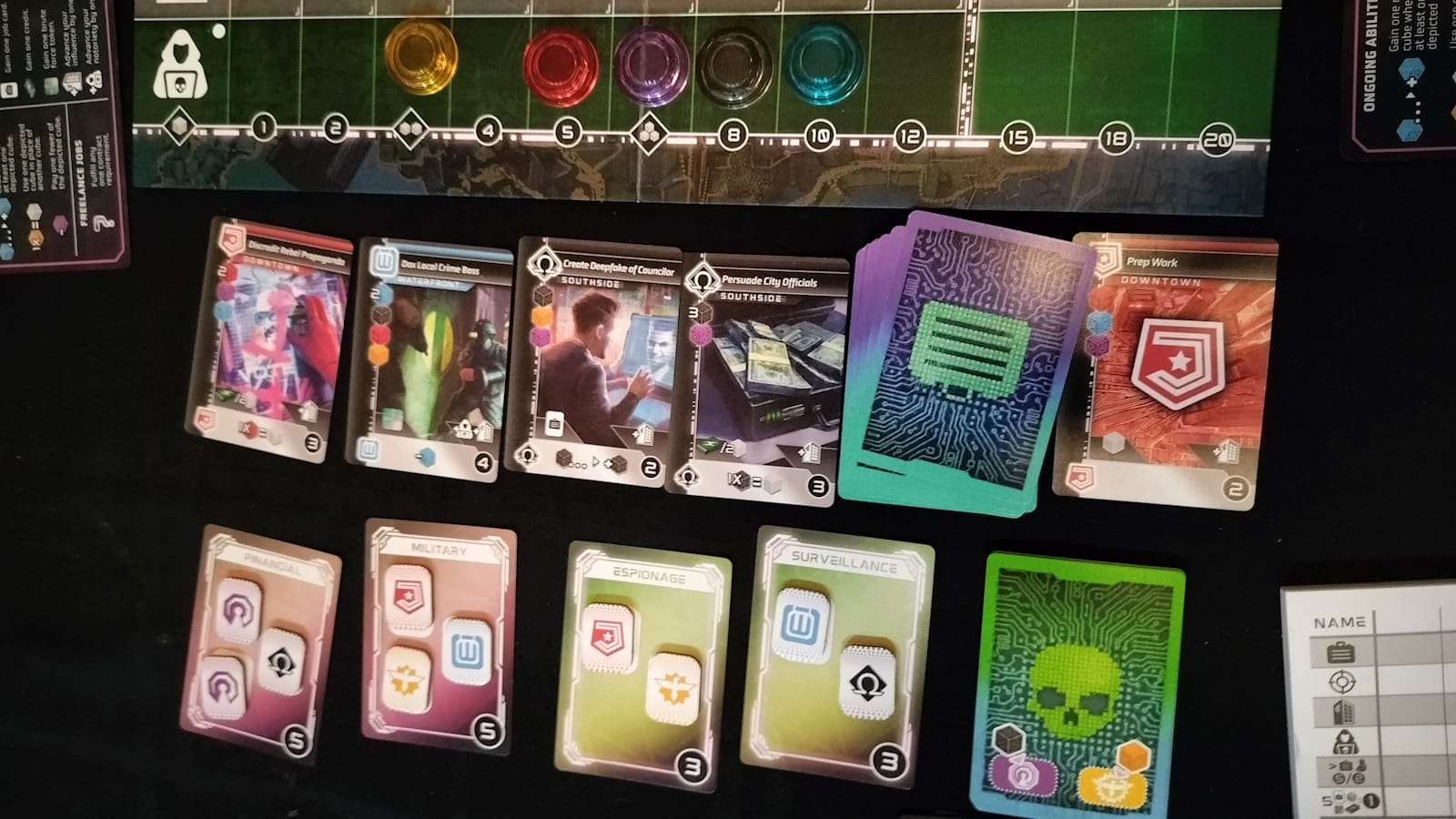
The hacking mechanic really steals the show in Metrorunner. While you are often hacking with a goal of getting cubes, money, or the like, completing the hack puzzle is always a rewarding experience. However, because it is so rewarding, we found ourselves staring at the center of the board, trying to solve the puzzle in our head before we decided whether we wanted to move or not. I feel like hiding the hacking cards between rounds would prevent players from spending so much time turning the mini game into a sure thing, and instead treat it like the risk it thematically feels like it should be.
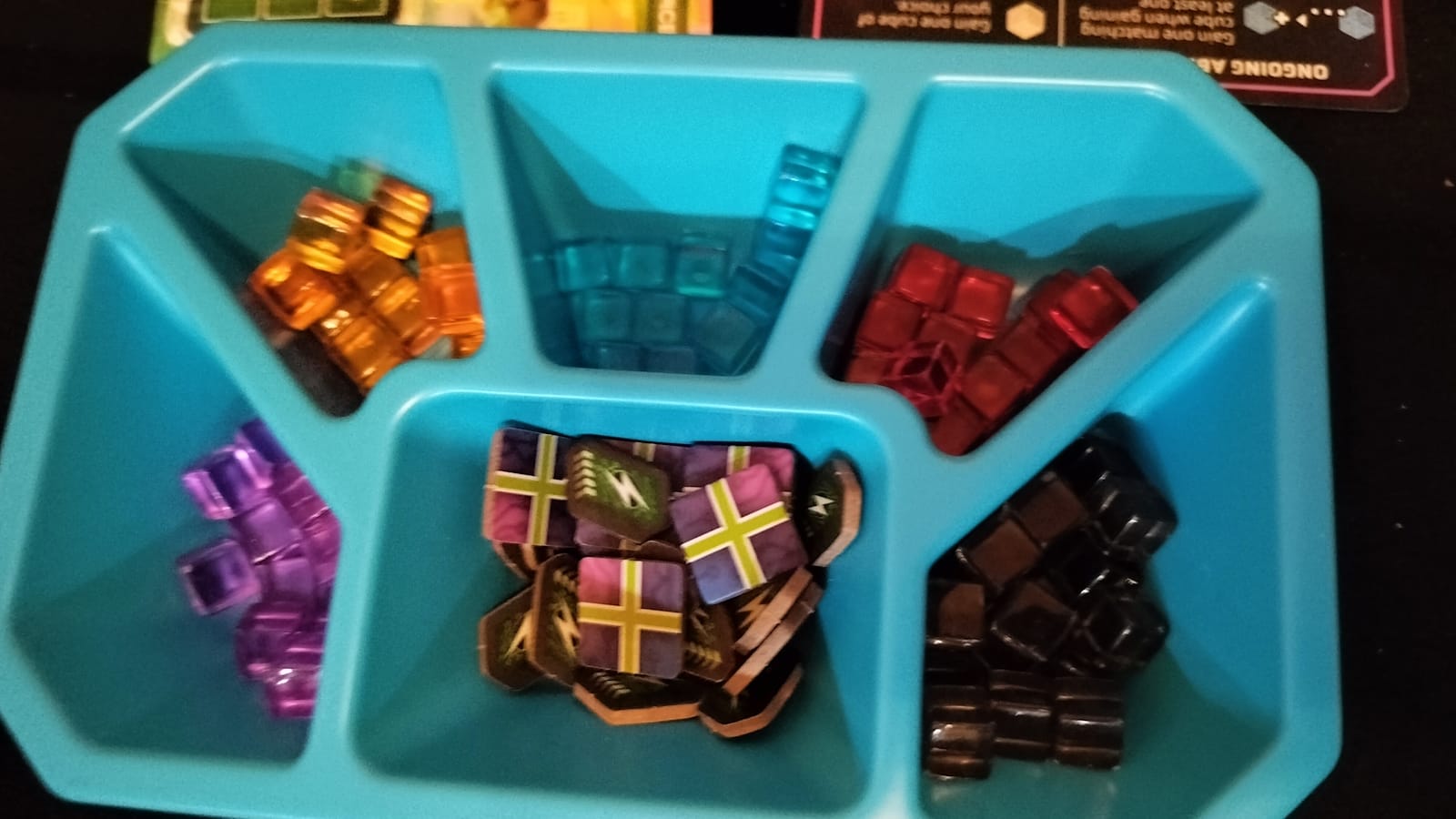
The build quality of Metrorunner is quite something, however. The player pieces are these big, blocky, low-poly pawns that feel like they came out of the era of early 90s 3d animation. Each character card is dripping with cyberpunk style. They also went all out with the player boards, being double-thick so your cubes have a place to sit and your cards can smoothly slide under them. The built-in storage solution is also top notch for being an in-the-box insert.
Metrorunner
Great
Cyberpunk pick-up and deliver game with a puzzle twist. The hack puzzles are great bursts of dopamine while trying to solve the larger puzzle of delivering your goods. The build quality is top notch as well!
Pros
- Great components and quality art
- A rarity: A puzzle game in my pick-up and deliver game!
- The core pick-up and deliver mechanic is very solid as well
Cons
- Be prepared for a lot of staring at the center of the board while people solve the puzzle in their head.
- Some of the unique hacker abilities are just worse than others
This review is based on a retail copy provided by the publisher.
Metrorunner Addon: Metal Network tiles
Thunderworks was kind enough to throw in a few extras. First and foremost, metal network tiles! These tiles replace the standard cardboard fair that comes in the game. These things are gorgeous!
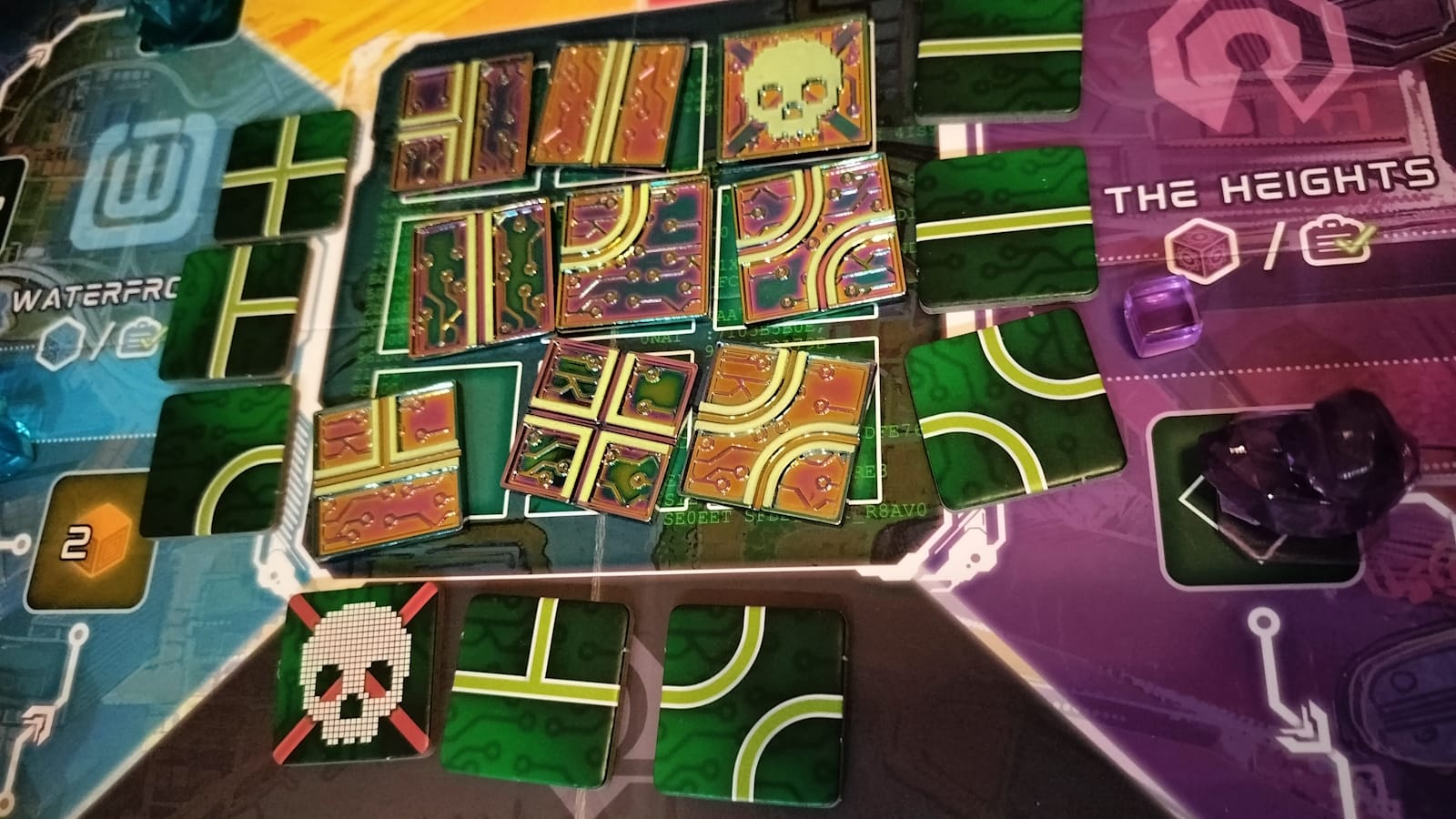
The oil slick washed metal makes them pop on the table, with the circuitry design in particular standing out. They also painted the pipelines with neon green, which can glow under a blacklight (though playing the rest of the game under a blacklight sounds unwise).
Overall, if you fall in love with Metrorunner, this is absolutely the best possible upgrade to make it have the kind of table presence that will make it shine.
Metrorunner Addon: Metal Network Tiles
Good
This review is based on a retail copy provided by the publisher.
Metrorunner Mini-Expansion: Dropsites
While I’ve characterized Metrorunner as a pick up and deliver game, it’s more of a resource collection and delivery game. The Dropsites Mini-Expansion adds on a true pick up and deliver experience. This mini deck of 17 cards has a card for each space on the board. Whenever there isn’t a card on the board, draw a random card and put it on its corresponding space. When a player stops in that space, they can grab the card for free. If they then take it to its delivery spot, they can keep the card for points at the end of the game. The more you collect, the more points you get.
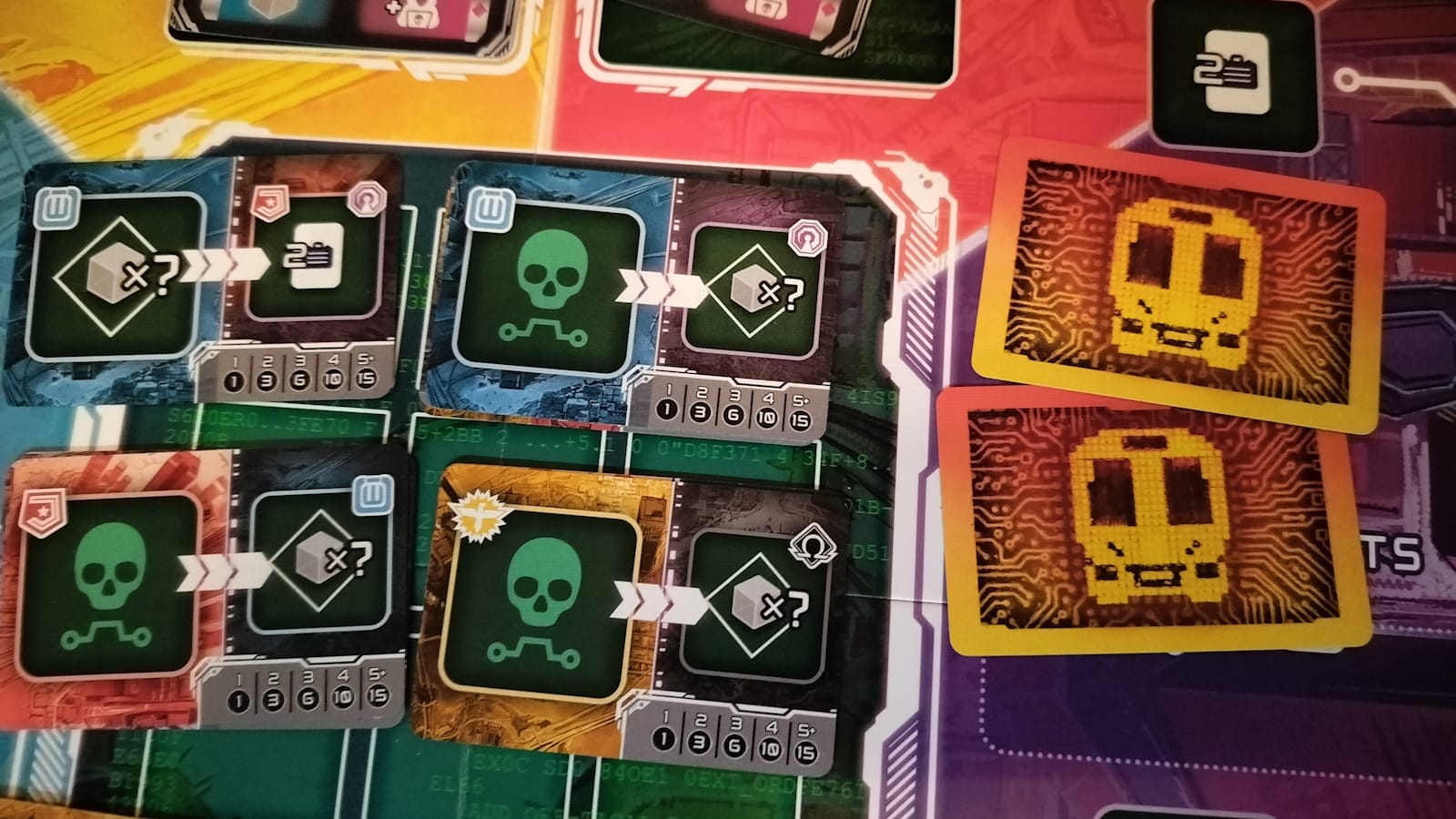
This simplistic add-on doesn’t really change the core gameplay. It’s also possible to completely ignore this new mechanic and still have a good chance at victory. However, the scaling victory points they offer also means that focusing on them is also a viable option. However, they don’t feel like a requirement to play the game by any means. Still, at 7 bucks, if you’re ordering the game from the Thunderworks website, you may as well pick up this expansion as well.
Metrorunner Mini-expansion: Dropsites
Good
This review is based on a retail copy provided by the publisher.





















